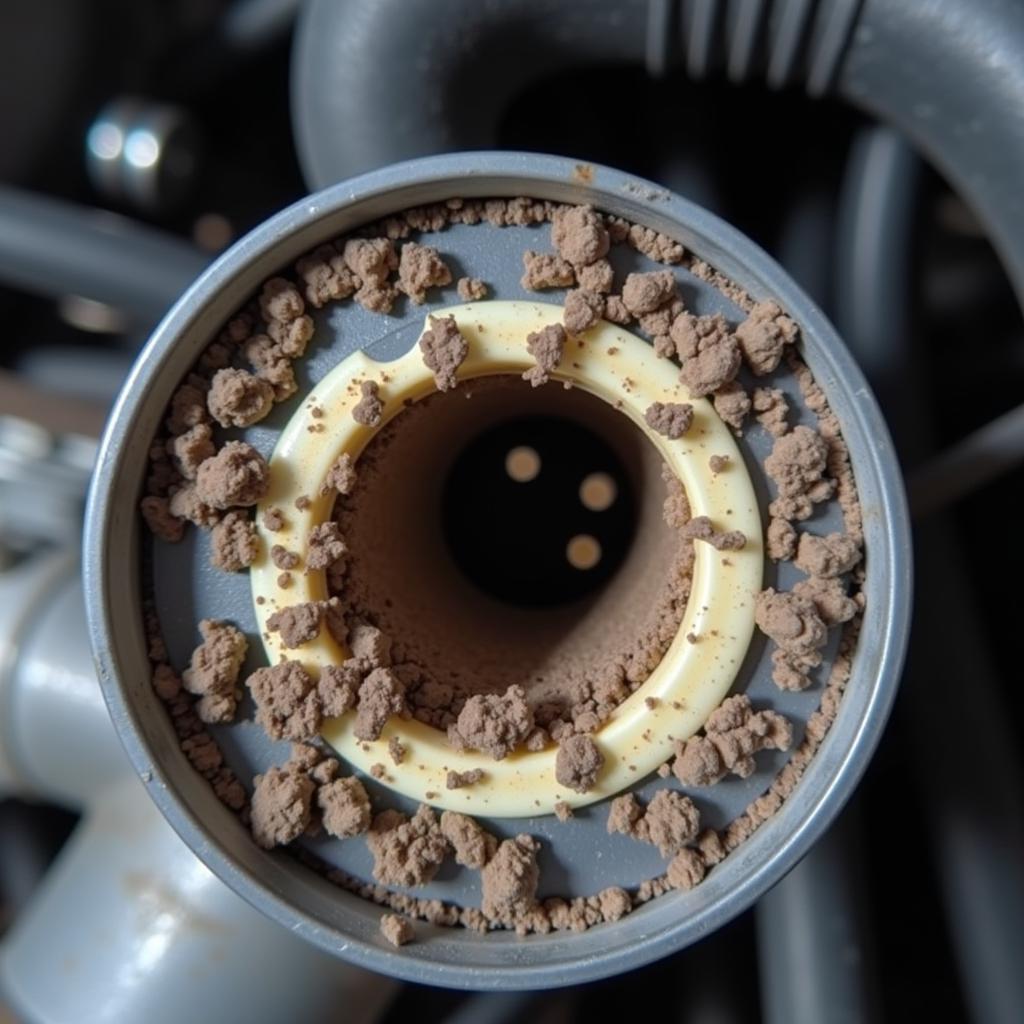Car acceleration problems can be frustrating and even dangerous. A sluggish response, hesitation, or complete lack of power when you press the gas pedal can leave you stranded or worse, cause an accident. Understanding the potential causes and solutions can save you time, money, and keep you safe on the road.
Similar to car egr problems, acceleration issues can stem from a variety of sources. From simple maintenance oversights to more complex mechanical failures, diagnosing the root cause is crucial. This article dives into the common Problems With Acceleration Cars experience, offering practical advice for car owners, mechanics, and technicians alike.
Common Causes of Problems with Acceleration Cars
A vehicle’s acceleration system is a complex interplay of various components. A fault in any of these can lead to acceleration problems. Let’s break down some of the most common culprits:
-
Fuel System Issues: A clogged fuel filter, malfunctioning fuel pump, or faulty fuel injectors can disrupt the proper flow of fuel to the engine, leading to poor acceleration. This is often accompanied by other symptoms like rough idling or decreased fuel efficiency. Similar to fuel system problems in cars, these issues can impact overall performance significantly.
-
Air Intake Problems: A dirty air filter restricts airflow to the engine, starving it of the oxygen it needs for combustion. This can result in sluggish acceleration and reduced power. Similarly, leaks in the air intake system can disrupt the air-fuel mixture, further hindering performance.
-
Transmission Problems: A slipping transmission, worn clutch, or low transmission fluid can all contribute to acceleration problems. These issues often manifest as a delayed response when shifting gears or a noticeable loss of power. This shares some similarities with the list of cars with cvt transmission problems, where transmission issues are a common concern.
-
Sensor Malfunctions: Modern cars rely on a network of sensors to monitor and control various engine functions. A faulty mass airflow sensor (MAF), throttle position sensor (TPS), or oxygen sensor can send incorrect signals to the engine control unit (ECU), resulting in improper fuel delivery and poor acceleration.
-
Exhaust System Restrictions: A clogged catalytic converter or muffler can create backpressure in the exhaust system, hindering the engine’s ability to expel exhaust gases efficiently. This can lead to reduced power and sluggish acceleration.
 Clogged Fuel Filter Hindering Car Acceleration
Clogged Fuel Filter Hindering Car Acceleration
Troubleshooting Problems with Acceleration Cars
Identifying the specific cause of acceleration problems requires a systematic approach. Here are some steps you can take to troubleshoot the issue:
-
Check the Basics: Start with the simple things. Ensure the air filter is clean and replace it if necessary. Check the fuel level and make sure the gas cap is securely tightened.
-
Inspect the Spark Plugs and Wires: Worn or fouled spark plugs can lead to misfires and reduced power. Inspect them for signs of wear and replace them if needed. Also, check the spark plug wires for damage or corrosion.
-
Scan for Trouble Codes: Use an OBD-II scanner to read any diagnostic trouble codes stored in the ECU. These codes can provide valuable clues about the underlying problem.
-
Check Fuel Pressure: Use a fuel pressure gauge to check the fuel pressure at the fuel rail. Low fuel pressure can indicate a problem with the fuel pump or fuel filter.
-
Inspect the Transmission Fluid: Check the transmission fluid level and condition. Low fluid or burnt fluid can indicate a transmission problem.
Why is My Car Slow to Accelerate?
If your car is slow to accelerate, it could be due to several reasons, ranging from a simple clogged air filter to a more serious issue like a failing transmission. A thorough inspection is essential to determine the exact cause. Similar to most common car engine problems, acceleration problems can have multiple underlying factors.
How to Fix Acceleration Problems in Cars
Fixing acceleration problems depends on the specific cause. Simple fixes like replacing a clogged air filter or fuel filter can be done at home. However, more complex issues like transmission problems or sensor malfunctions may require professional repair. For legal advice regarding acceleration problems, consider resources like lawyers for acceleration problem in cars.
Conclusion
Problems with acceleration cars can be a significant safety concern. By understanding the common causes and following the troubleshooting steps outlined in this article, you can identify and address these issues effectively. Remember, regular maintenance is crucial for preventing acceleration problems and ensuring optimal vehicle performance. For any further assistance or specialized advice, feel free to reach out to us at AutoTipPro. Our phone number is +1 (641) 206-8880, and our office is located at 500 N St Mary’s St, San Antonio, TX 78205, United States.




Leave a Reply